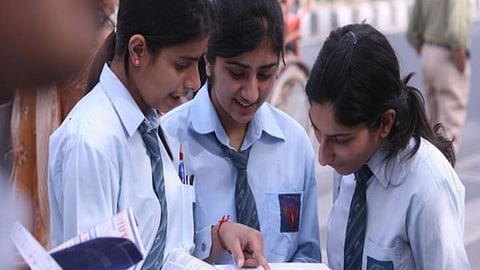

VIJAYAWADA: The Board of Intermediate Education, Andhra Pradesh (BIE), has proposed a slew of reforms, including the removal of first-year intermediate board exams, realignment of examination mark patterns, revision of syllabi and textbooks, and the introduction of new subject combinations starting from the next academic year.
Speaking at a press conference on Wednesday, BIE Secretary Kritika Shukla stated that the reforms are slated for implementation in the 2025-26 academic year.
She emphasized that the public is welcome to share their suggestions on the proposed reforms on www.bie.ap.gov.in until January 26, 2025.
The reforms align with the recommendations made by the academic committees appointed on October 1, 2024, she added.
The syllabus revisions aim to align with NCERT guidelines and the National Curriculum Framework (NCF) 2023, addressing gaps in competitive exam preparation.
The current syllabi for science, humanities, and language subjects have seen minimal updates over the years, prompting the introduction of NCERT-based textbooks for Science in 2025-26 and for Arts, Humanities, and Languages in a phased manner through 2026-27.
The reforms also propose new subject combinations, offering more flexibility. English will remain compulsory, while the second language will become elective, with 25 options available, including languages and core subjects. A sixth optional subject will be introduced, enabling students to replace a failed subject if specific criteria are met.
Additionally, Mathematics (A and B) and Biology (Botany and Zoology) papers will be merged, and a single paper format will be introduced. New combinations, such as MBiPC, will also be offered.
Kritika Shukla stressed that proposals have been made to revise the marks distribution for both science and humanities streams. For humanities students, the total marks will be 500 across five subjects, with 400 marks allocated to theory and 100 marks to practicals. For science students, the total marks will also be 500, with specific distributions: MPC students will have 380 marks for theory and 120 marks for practicals, while BiPC students will have 370 marks for theory and 130 marks for practicals. Changes to the examination mark pattern aim to align with CBSE standards, redistributing marks between theory and internal assessments to emphasise critical thinking and problem-solving, as advocated by NEP 2020. Language and Humanities subjects will have an 80-20 split between theory and internals, while Science streams like MPC and BiPC will adjust weightages for theory and practicals. The reforms will also incorporate multiple-choice questions (MCQs) and reduce the weightage of essay questions to foster analytical skills.
To reduce exam stress, the BIE proposes the removal of first-year board exams, with internal assessments conducted by junior colleges. Only second-year board exams will be held, aligning Andhra Pradesh with CBSE and other state boards.
Shukla noted that the School Education Department had introduced NCERT books for Class X in 2024-25, so there is an imminent need to introduce NCERT books in intermediate first-year from the 2025-26 academic year to ensure a seamless transition. This shift aims to provide students with more time to build foundational knowledge and better prepare for competitive exams like JEE and NEET.
She clarified that these changes are still in the proposal stage, and no final decision has been made regarding their implementation. The proposals aim to create a balanced distribution of marks between theory and internal/practical assessments. For humanities students pursuing courses like CEC and HEC, 20% of the marks will be allocated to project work and research activities.